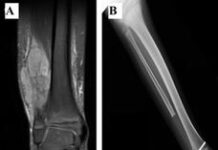
A Cardiff University-led UK-wide survey has found that more than 1 in 5 people are less likely to take part in cancer screening now than before the pandemic.
The researchers from Cardiff University and Cancer Research UK, who ran the study, are calling for national campaigns to encourage people to take part in cancer screening.
Cancer services were highly disrupted as a result of the pandemic, as national screening programmes around the UK were effectively paused between March and June 2020.
It’s estimated that around 3 million fewer people than normal in the UK had a cancer screening test between March-September 2020.
The survey looked to find out people’s attitudes towards attending cervical and bowel cancer screening during this uncertain time.
The results are in
The study surveyed 7,543 adults across the UK between August and September 2020, including 2,319 responders eligible for cervical screening and 2,502 eligible for bowel screening. 1,003 people were eligible for both.
Whilst the majority of respondents eligible for cervical and/or bowel screening said they would “definitely” take part in their next screening, a substantial minority said they would be “less likely” to attend screening now.
Key findings:
- 74% of respondents eligible for cervical screening said they would ‘definitely’ attend their next cervical appointment, while 84% of eligible respondents said they would ‘definitely’ take part in bowel screening.
- A substantial minority (30% of those eligible for cervical screening, and 19% of those eligible for bowel screening) said they are less likely to take part in screening now than before the pandemic.
- Of those who had not attended their last cervical screen, 70% said this was unrelated to COVID-19. 12% reported being unable to attend due to COVID-19, despite trying, and 15% had chosen not to attend due to COVID-19.
- 75% of responders also said they were worried about delays caused by the pandemic to cancer tests, investigations and screening.
These findings have been published online but are yet to be reviewed by independent scientists.
As part of the study, a small number of respondents were interviewed, who highlighted barriers to attending screening and their feelings and concerns towards the screening programme during the pandemic.
Interviewees described reasons for not attending cervical screening including increased risk of COVID-19 infection in healthcare settings, and uncertainty about how to follow social distancing guidelines. No COVID-19 specific barriers were expressed for bowel screening.
Interviewees were supportive of the cancer screening programmes, but some were unaware that the screening programmes had been paused. Other interviewees who had experienced a delay to cervical or bowel screening were unsure when it would resume and whether they were required to proactively rearrange appointments.
Taking action
In light of the results, researchers have advised the government and health services to “consider carefully how best to return screening participation to pre-pandemic levels as quickly as possible”.
Professor Kate Brain, a health psychologist from Cardiff University’s School of Medicine who led the research, said: “Our survey suggests that nationally coordinated campaigns with clear messaging to inform the public that they will be contacted about screening – and to encourage them to consider taking part – are urgently needed.
“We also need to continue to run interventions to reduce non-COVID screening barriers among non-responders and to make sure the public is aware that screening services are open safely and explain what will happen at the appointment to minimise COVID-19 risk.
“Lastly, we also need to ensure that there are enough healthcare staff to urgently deal with the screening backlog and ensure people who need further diagnostic tests receive them in a timely manner.”
The researchers carried out another survey earlier this year, and when those results are available the team will be looking to see if the findings have shifted over time. It will also be important to cross-check the survey findings with the data on actual uptake that are collected by the different screening programmes.
Dr Jodie Moffat, Cancer Research UK’s head of early diagnosis said: “We’ve seen big shifts in how people respond to their health, and we think there’s an important role for public health campaigns and activity to remove barriers to cancer screening and to encourage people to seek help if they’ve noticed unusual or persistent changes in their body.
“The NHS is working incredibly hard to deliver screening and cancer services but more capacity is required if we’re to work through the backlog of patients quickly and safely and be in a position to deliver the transformations of the future.”








